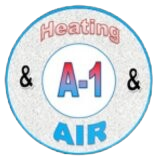
The Decision To Repair Or Replace An Air Conditioner
Air conditioning systems keep getting better with each passing year, but of course not even the best can last forever. Air conditioning systems are complex due to the technological advancements in HVAC research over the past 25 years. Different variables will determine the lifespan of an HVAC system. HVAC units in near proximity to salt water may lessen the lifespan of the unit. A well-made, well-maintained central air-conditioning system under average demand typically lasts 12-7 years. “How much money or repairs should I continue to invest in before making a decision to replace it” is one of our most common HVAC questions we receive from property owners.

Is Your AC Unit Older Than 10 Years
If your air conditioner is older than 10 years, homeowners have a difficult decision to make on whether to repair or replace their HVAC system. How much money will you invest in an AC repair today not knowing when the next repair service will be required for an AC part other than the one you may have just fixed. If your AC bills are skyrocketing, they will only continue to increase. It is a prudent decision to give us a call and let’s discuss all the factors involved in either repairing your existing AC unit or replace it with a more energy efficient unit.
Is It Time To Replace My Existing Air Conditioner
In recent years, with rising energy costs and mounting environmental concerns, HVAC manufacturers have launched fleets of HVAC equipment that boasts superior energy efficiency. There will become a time for most HVAC systems where it is economically prudent to stop spending money on repairs and replace the unit. When making the decision on whether to repair or replace my AC unit, there are a few factors to consider, including the age of the unit, its performance and eficiency, and the cost of any required repair. There are 9 signs your HVAC system is not working properly:
- Excessive or increasing noise or vibrations (squeling, grinding, or grating)
- Frequent breakdowns
- A significant increase in energy bills
- Problems with the thermostat
- Hot air blows out of the unit
- The unit doesn’t switch off or won’t turn on
- Poor air flow resulting in the unit cooling areas of the home unevenly
- Burning smells or moldy odors emanating from the unit, indicating issues with wiring or moisture build up
- More dust is accumulating in your home because of poor AC ventilation
